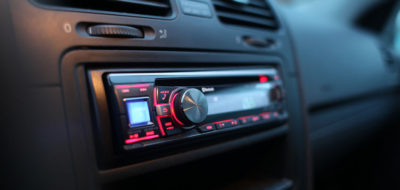The second filing window is open as the Federal Communications Commission allows AM owners to modify or relocate FM translators as part of the agency’s revitalization initiative for AM radio. Because applications will be processed by the FCC on a first-come, first-served basis, it is expected the biggest number of filings will come during the next few weeks.
The second filing window—which will remain open until Oct. 31—allows bigger Class A and B stations to make modifications similar to what smaller Class C and D stations were permitted to request during the first filing window that stretched from January-July.
The first day of the second window brought 243 applications seeking to modify FM translators. How big a jump is that? A week earlier, just seven applications were filed. There’s good reason for the flood as this may be a once-in-a-lifetime opportunity for some AMs. Under its current window, the FCC is granting permission to move translators as much as 250 miles. Operators can also file to change the translator’s frequency to tuck it into markets where the existing parameters won’t work.
The trade-off is that under the rules adopted last October by the FCC, a broadcaster must simulcast the designated AM station for at least four years. But plenty of owners are apparently just fine with such a requirement since more than 600 applications to relocate FM translators were submitted during the first filing period.
The second window appears to have also given a boost to the deal market. There were 42 applications to buy translators on the first day of the second window with nearly all the proposed transactions tied to plans to relocate the signals.
No company came out of the gate stronger than Salem Media Group, which filed deals totaling $807,540 to buy 15 translators so far. The deals will allow Salem to add FM signals to many of its news talk “The Answer” branded stations, including “AM 970 The Answer” WNYM, New York; “AM 1070 The Answer” KNTH, Houston; “AM 1250 The Answer” WPGP, Pittsburgh; “AM 1420 The Answer” WHK, Cleveland; “AM 1260 The Answer” WSDZ, St. Louis; “AM 690 The Answer” KHNR, Honolulu; and “AM 1460 The Answer” KZNT, Colorado Springs, CO.
Salem is also buying translators for other talk stations including “AM 1280 The Patriot” WWTC, Minneapolis; “Talk 1640” KDZR, Portland, OR; and business news KGU, Honolulu (760).
The company has also filed for translators for several religious teaching stations including “1220 AM The Word” WHKW, Cleveland; “True Talk 800” KPDQ, Portland, OR; KFIA, Sacramento (710); and WTLN, Orlando (950).
Salem also bought a silent AM in St. Louis that, when combined with a new translator, will give the company its second outlet in the market. For $190,000 it will add KXFN (1380) to a cluster that already includes news talk “AM 1260 The Answer” WSDZ. Salem will also spend an additional $40,000 to buy the Festus, MO-licensed translator K283CA at 104.5 FM, which it will move into the St. Louis market to simulcast KXFN.
Salem chief executive Ed Atsinger told investors earlier this year the company planned to “de-emphasize” buying new radio stations to focus on digital acquisitions. The issue isn’t that Salem isn’t interested in radio, but that the company typically reformats its new stations.
“That means it will have no income to start with and, in fact, we will have operating losses,” he explained. But Atsinger said during a conference call with analysts that there would be situations when an exception would be made—such as when it’s a “tuck-in” acquisition in a market it already operates. “We typically can get those to be cash flow positive quickly,” he said.
Among the other large groups gobbling up new translators are Alpha Media, which has bought a signal to simulcast “News Talk 710” KGNC, Amarillo, TX; Townsquare Media, which snatched up an FM for “580 News Radio” KIDO, Boise; Saga Communications, which bought a translator to simulcast talk KBAI, Bellingham, WA (930); and NRG Media, which has secured a translator to simulcast regional Mexican KMMQ, Omaha, NE.
via Inside Radio


